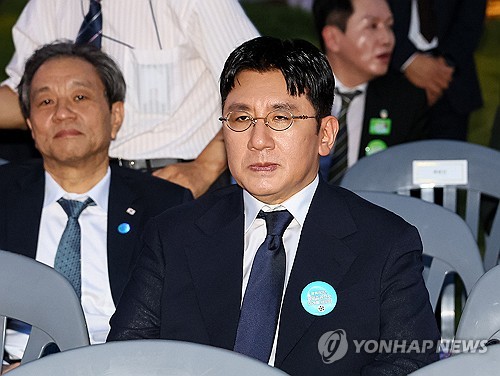Allegations have surfaced around HYBE’s 2019 IPO process.
Claims say Chairman Bang Si‑hyuk told some investors there were no plans to list the company.
There are also allegations that a private equity vehicle bought shares and later realized large gains.
Police and financial regulators are investigating possible violations of capital markets laws.
“Where IPO practice meets unfairness: who is responsible?”
Case overview
This is the core of the listing allegations.
In short, evidence suggests that around HYBE’s (formerly Big Hit) 2019 IPO, some investors were encouraged to sell their stakes.
A private equity fund then bought large blocks of those shares, later selling them after the listing and realizing substantial profits. Investigators allege some of that profit flowed back to the chairman.
How communications between company insiders and outside investors unfolded in 2019 is central to this case.
The dispute hinges on gaps between the information investors received and what executives actually knew.
Police have opened a probe focused on alleged breaches of capital markets rules, and financial authorities are reviewing related documents.
Ultimately, investigators’ findings and any court rulings will shape how this episode is legally and publicly defined.

History and background
We reconstruct the sequence to find the links in the chain.
HYBE, known previously as Big Hit Entertainment and widely recognized for managing global acts such as BTS, was preparing an IPO in 2019.
Allegations say the chairman told some outside investors there was no plan to list, while other evidence points to active listing preparations.
After those investors sold, a private equity vehicle (a fund typically run by professional investors) bought many shares and later sold them at higher prices after the IPO, producing large gains.
The core problem here is information asymmetry and a lack of transparent internal decision‑making.
Company knowledge extends beyond basic financials to include timing for a listing, strategic partnerships, and possible changes to shareholder structures.
If management intentionally concealed material facts or provided misleading information, the fallout would be serious from an investor‑protection standpoint.
On the other hand, complex financing arrangements and private fund structures were common practice then, and defenders may argue this context matters.
Legal questions
The specific legal theory will be decisive.
Alleged violations of capital markets law can relate to insider information use, market manipulation, and deceptive practices.
Investigators say they are collecting contracts, communication records, and internal notes to piece together the facts.
Proving intent is critical here.
Distinguishing between genuine differences in interpretation and deliberate deception will be a central issue at trial.
Courts will also need to examine whether profit‑sharing arrangements between executives and the private fund were lawful under contract and whether disclosure duties were bypassed.
Defense perspective
Supporters stress procedural legitimacy.
Defenders argue HYBE’s IPO complied with laws and market practice at the time, and that the chairman is cooperating with investigators.
They say investors sold voluntarily and there is no direct evidence management forced sales.
First, timing and scope of disclosures can be a matter of interpretation rather than misconduct.
Preparation work for a listing and formal public disclosure naturally happen at different times and intensities, and the company says it followed reporting rules.
Second, creating a private equity vehicle to reallocate stakes can be a routine financing or restructuring move.
Private funds are run by professional managers who accept particular risks in pursuit of higher returns, so such activity is not automatically illegal.
Third, if the fund’s profit splits and distribution rules were contractually agreed, that agreement alone does not prove illegality.
Confidential contracts are common in private transactions, and private deals differ from classic insider trading in key ways.
Finally, defenders highlight the need for managerial flexibility and efficient capital deployment in fast‑moving industries like entertainment.
They say collaboration with private funds can be a legitimate business decision aimed at long‑term growth.
However, they acknowledge these claims must be tested by evidence and legal review.
Critical perspective
Critics point to concrete unfairness.
Opponents say the clues point to investor deception and insider dealing.
They argue that hidden information and opaque profit sharing between management and the private fund undermined market fairness.
First, critics emphasize real investor harm.
Retail investors who sold before the IPO—allegedly without full information—missed the post‑listing gains and suffered real losses that are not easily chalked up to normal market swings.
Second, profit sharing between executives and the private fund raises serious ethical and legal concerns.
This is the part that should be highlighted.
If executives used nonpublic information to secure their own gains ahead of other investors, that pattern would fit classic insider trading and deceptive conduct.
Legal claims could include misuse of inside information, inducing unfair trades, and fraudulent misrepresentation.
Third, the episode exposes regulatory gaps.
If market regulators and exchanges did not detect or prevent such arrangements, policy fixes are necessary.
Even with later enforcement, restoring lost wealth to harmed investors is difficult and market trust suffers long term.
Critics therefore demand strict enforcement and system changes: better internal controls for material information, more disclosure around private funds, and clearer rules on profit allocation.
They add that this debate goes beyond one leader’s ethics—it's about industry norms and how capital markets should protect ordinary investors.
Hence the call for decisive investigation and reform is strong.
Wider social impact
The trust deficit is the main worry.
This case risks more than financial loss; it could erode public confidence.
Because HYBE is closely tied to popular artists and consumer brands, doubts about management affect wider reputations.
Investors put money into markets based on fairness and predictable rules.
If high‑profile corporate figures face legal and ethical questions, retail participation can drop and market liquidity may suffer.
Meanwhile, robust enforcement and clearer rules can strengthen confidence over time.
Thorough investigations and sensible regulatory fixes can form the basis for recovery in the medium to long term.
Policy recommendations
Practical steps to reduce future risk are needed.
First, require more disclosure related to private equity vehicles tied to IPOs.
Second, tighten internal controls and transparency for executives’ trades and information handling.
Third, create faster, more effective remedies for harmed investors.
Long legal fights reduce the chance of meaningful recovery, so early relief mechanisms matter.
Fourth, strengthen regulator capacity and align administrative penalties with criminal enforcement to improve deterrence.
These measures directly support clearer capital flows and better investor protection.

Conclusion
Summing up the essentials.
First, the heart of the matter is information asymmetry and the risk of insider deals.
Second, defenders stress procedural compliance and managerial discretion.
Third, critics press for stronger investor protection and system reform.
Regulators should use this case to plug institutional gaps.
Companies must prioritize ethics and transparency moving forward.
This is not just one firm’s problem.
Because it affects trust and capital flow across markets, we need public discussion and policy change together.
What measures should take priority in your view?